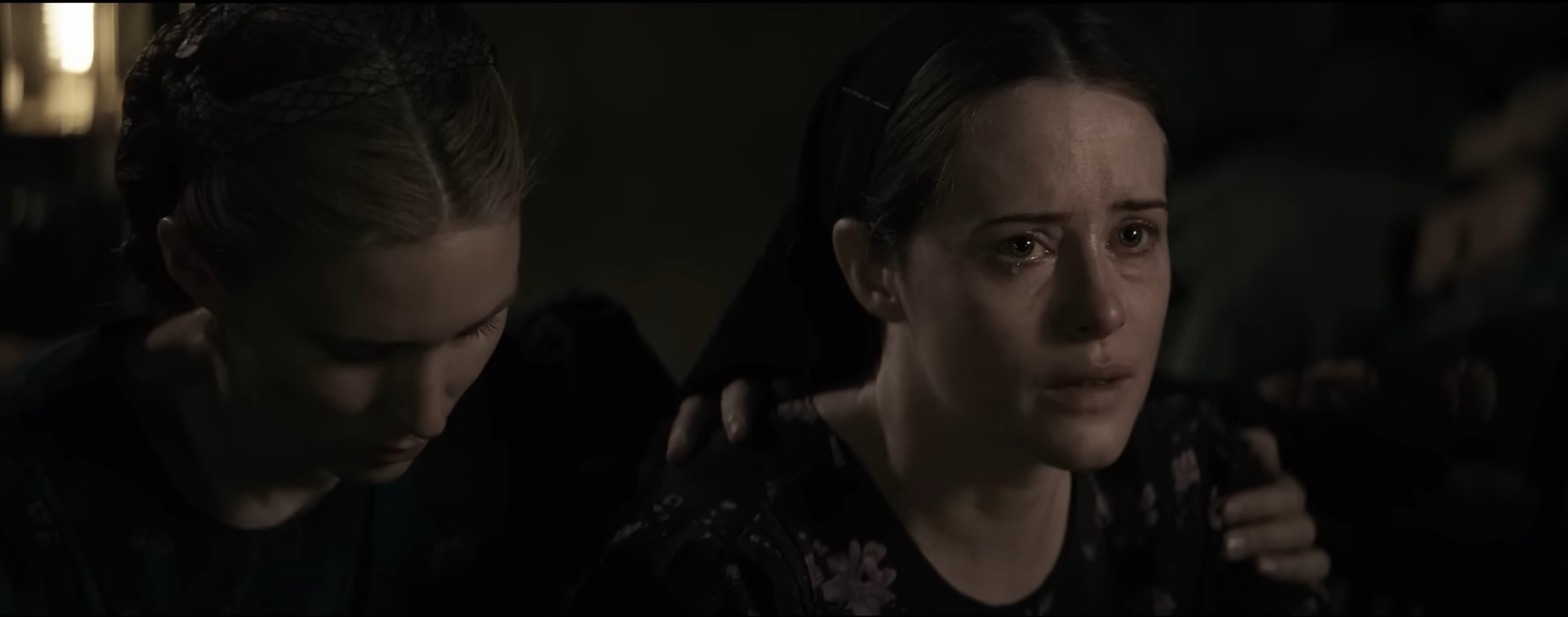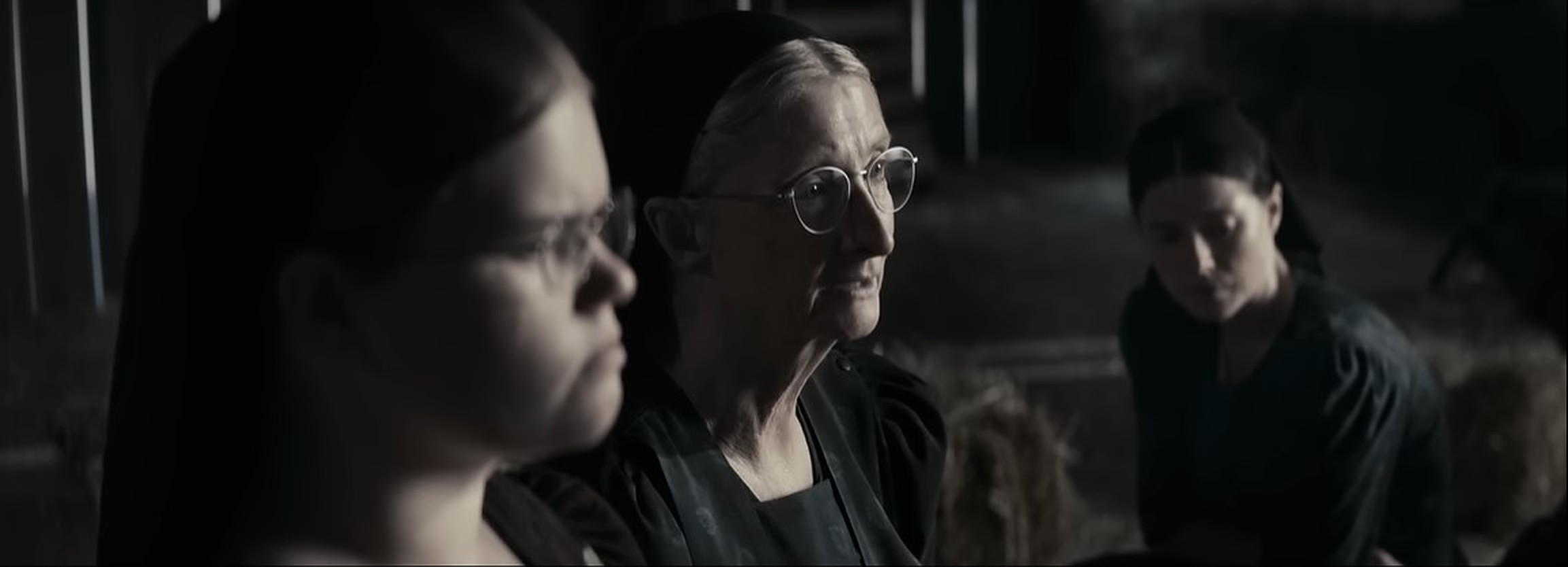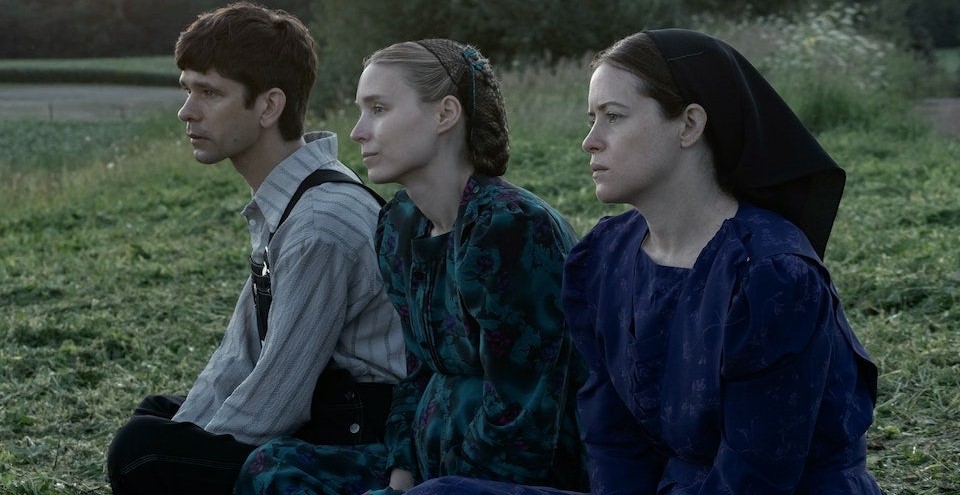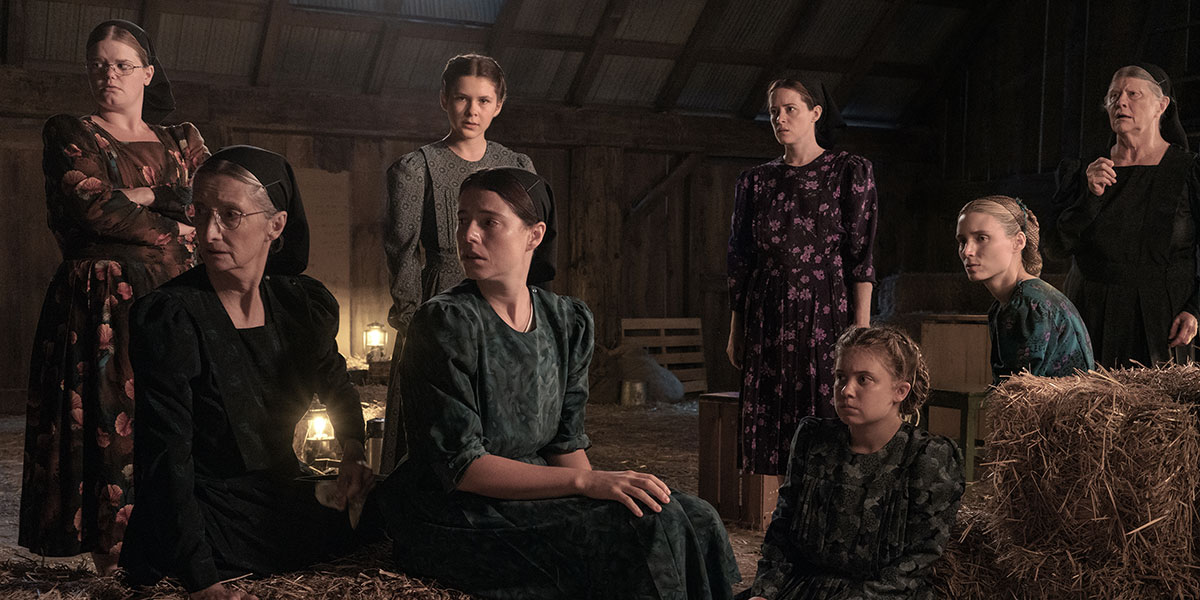Sarah Polley’s Oscar-contending 2022 film, ‘Women Talking’ is an incredibly thought provoking story that scrutinizes the concepts of oppression and trauma in an effort to exhibit them in all their nuances and interpretations. It follows the story of a community of women living in a highly secluded religious colony, and how their worlds are flipped when they learn of the long standing abuse they had suffered from the hands of the men in their colony.
The film, given its sensitive content, is aptly somber themed and dialogue heavy with the entire focus of the plot given to thoughts and ideas. It is proposed as a 24 hour long conversation these women have with each other and themselves as they try to find a path forward through their anger, grief and fear. The story is packed with emotionally draining scenes and challenging opinions, and so by the end it can leave the viewers with a few questions. Here are some of them explained. SPOILERS AHEAD.
Women Talking Plot Synopsis

The film starts with the horrid unmasking of the constant sexual misuse of women within an isolated colony. The women find out that what had so far been treated as incidents of female hysteria and imagination, were in fact real incidents wherein men had been drugging and raping the girls and women of their community for years.
When the attackers are disclosed, they are arrested and taken away to a nearby city to be locked up. The men of the colony follow, to bail the attackers out and in doing so leave the women of the colony to themselves for two days. Left, for the first time to their own devices and still steeping in the reaction of the recent revelations, the women decide to take a vote on what to do with their future. The options they present themselves with are clear and precise— stay, leave, or stay and fight.
The rest of the plot follows the extensive and contrasting discussion that takes place during this time— in which women who have until now not even been allowed to think— have to think up a future for themselves and their kids. The cast of characters all have unique opinions, each influenced by trauma responses that all stem from similar traumatic events but have altered each character’s identity and ideals in different ways.
In this open and honest communication, each character finds the space to self-actualize and work through their traumas, and in the end they come to a decision. They decide to leave.
Women Talking Ending: Why Did the Women Decide to Leave?

In the beginning of the movie, even just the idea of leaving is considered inconceivable by one of the protagonists, Salome. Salome views leaving to be an act of submission and cowardice. She is hurt by the violation of her 4-year old daughter and is seeking vengeance.
Mejal, another protagonist, is also shown to be against the idea of leaving. None of the women in the colony know how to read or write, they have never been told of what lies outside of their community and they have been living with orthodox, oppressive beliefs in an orthodox, oppressive system. Yet it is the only system they have ever known. Wouldn’t leaving just be choosing one form of danger over another? If it is security they seek, how can they ever find it in an unknown world?
The decision by now seems clear, both to the women and the audience. The colony belongs to the women as much as it does to the men; and the women should not bear the payment of the consequences of men and their actions. They will stay and they will fight and ensure a better future. It is only when the question of how is raised that the idea starts to crack. How do you find a solution to a violent and hateful problem without being violent and hateful yourself? In a community built on years of sexism and inhuman oppression, how do these women demand back the right to their lives without the fight chipping away at their soul piece by piece?
Indoctrinated or not, at the end of the day, they belong to a pacifist faith. Peace and forgiveness are the building blocks of who they are, but the existence of both are unrealistic in their situation. Staying and fighting is not an option because it directly puts them on a violent path— either inflicted by or onto them. And staying without a fight was never an option.
So, in an effort to preserve not only their security but sense of self as well as faith, in the end the women have no choice but to leave. It is no longer an act of submission or cowardice but rather one born from self preservation in the face of adversity.
Why Does August Stay Behind?

When all the men leave only two are left behind— Melvin and August. August is the teacher for the colony’s boys, and one of the only people who has experienced the outside world. Unlike the other men in the colony, his worldview and beliefs are shaped differently and are extremely influenced by his mother. In a nutshell, he’s the man one refers to when they say ‘not all men’. In order to understand why August stays behind, it is very important to understand why he came back to the colony in the first place.
At the start of the movie, August is given the role of the spectator. He is as much a witness to the plot as the audience, however as the plot progresses he is afforded more and more agency. We learn about his character and his story, and we start to understand that much of his actions are driven by the love he has for the women in his life— his mother and Ona. It is this same love that makes him feel responsible for teaching the new generation of men a better, more empathetic way of life.
After his mother was shunned from their community, August went on to live a normal life and even attended university. Unlike the women in this story, August lives in the colony by choice. A choice he makes because he’s unable to ignore the situation at hand. August, much like an unmoving bystander to an ongoing crime, feels complicit in the mistreatment of these women. He can’t, in good conscience, leave the colony behind without at least trying to change things for the better.
His character is very purposefully used as a symbol for the role men play in the fight against gender discrimination. Men’s contribution to the fight and their solidarity is invaluable, and it is needed. In a community where all the power is given to men and none to the women, the role a man can play towards advancement is incomparable. And so, even though staying behind would mean parting ways with the woman he is in love with, it is because of Ona herself that August makes his decision. He owes it to Ona and his mother to at least try and bring about a change in the new generation of men, and so he decides to stay behind.
Who is The Narrator?
The film starts off with a monologue style introduction by a female narrator, and this is carried over throughout the plot. So naturally the question arises: who is the narrator?
‘Talking Women (2022)’ is based on a novel of the same name by Miriam Towes. In the book, the events of the story are narrated by August, however it is very clear that the same is not the case in the film. In the film, instead of August, the narrator is Autje, Mariche’s daughter.
The decision to have a young girl tell the story of these women instead of a man is one in theme with the rest of the movie. The story after all deals with an experience intrinsic to the world of those who are born a girl. Autje, throughout the movie, is shown to be curious about the world outside of the colony and is shown to view the opportunity to leave as something exciting and favorable.
The story, set out to be a reflection and a commentary on our current society, cleverly uses the cult-like colony as a simplified metaphor. In doing so, it is able to distance itself from the complexities of our society and presents societal issues of bodily autonomy, sexual exploitation and intellectual subjugation of women inside of an innately patriarchal environment in their most fundamental elements.
Autje, like all women of the colony (and Melvin), intimately understands these elements. She is young enough to overcome her orthodoxical upbringing and yet still wounded enough to understand the weight behind it.
This movie tells a very specific story about a very specific issue that plagues the lives of numerous people. At the very start of the movie the text “What follows is an act of female imagination” is transcribed on the screen. This story is an allegory for the very similar real world problem— however in the real world, the problem is not just contained within one orthodox colony. In the real world there is no easy solution for escape, because there is nothing to escape to. No matter how badly the female imagination may yearn for it.
The issue this movie deals with is sensitive, and yet it is handled with delicate care without it being trivialized. It is a debate that happens in our world everyday, but within the confines of this hour and forty-five minutes long movie, it is afforded a place for depth, analysis and perhaps most importantly a scope for understanding.
Read More: 10 Movies Like Women Talking You Must See


You must be logged in to post a comment.